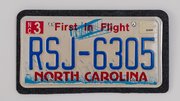News
Remote monitoring ups kiosk cash security
December 28, 2005
Kiosks that handle cash transactions need to be restocked on a regular basis. But most retailers face the question, "Who should have access to the cash door?"
While retail associates seem like the perfect option -- they are already on site and can empty the cassette with little disruption -- they may not be the best choice. Cash shrinkage -- a $14.9 billion problem annually -- often is due to theft by those permitted to access the kiosk, and associates are the main culprits.
One out of every 30 employees openly admits to stealing. In fact, employees steal 6.7 times more than shoplifters.
Cash shrinkage can be prevented several ways, including the use of cassettes with tamper-evident mechanisms or cash acceptors that require keys to access the money within the cassette.
|
"The problem with cash doors that use keys is that you can't verify who the user is," said Ed McGunn, president of Corporate Safe Specialists. "The key is the master controller of that door, and if the doors can't be controlled, they will be opened."
A kiosk cassette of 1,200 notes could equal $10,000. If a retailer's system for controlling door access is insecure, those 1,200 notes could disappear faster than money from a register drawer.
When deciding who handles the cash, retailers should consider:
· Expected transaction volume
· Transaction value
· Cassette pick-up frequency
· Security features such as keys, PINs or biometrics
"Accessible cash is a business problem," said McGunn. "Time delay locks are one solution, and an effective deterrent. Another important thing to consider is limiting accessibility by cashier or manger to that door."
The good news is that technology advancements in cash management give retailers more options than ever.
"What we do at Corporate Safe, and what we do on our safe level, is we monitor that door," said McGunn. "We use the computer, either using bio fingerprint or PIN code, to allow access to the kiosk or the safe, and then we provide that information (about when a kiosk is accessed) over the Internet."
Remotely monitoring cash via the Internet can help retailers reduce levels of pilferage experienced by other, less secure cash acceptors.
If a store's cassette is removed, the retailer will get an e-mail or text message that says, for example, the cassette from store number 23 was just removed. This type of notification is very important for cash management verification purposes.
If the cassette removal was scheduled, then things are fine. But, if a retailer receives notification of an unscheduled removal, the system has caught an incidence of robbery or employee theft.
Related Articles
 ChatGPT
ChatGPT Grok
Grok Perplexity
Perplexity Claude
Claude













